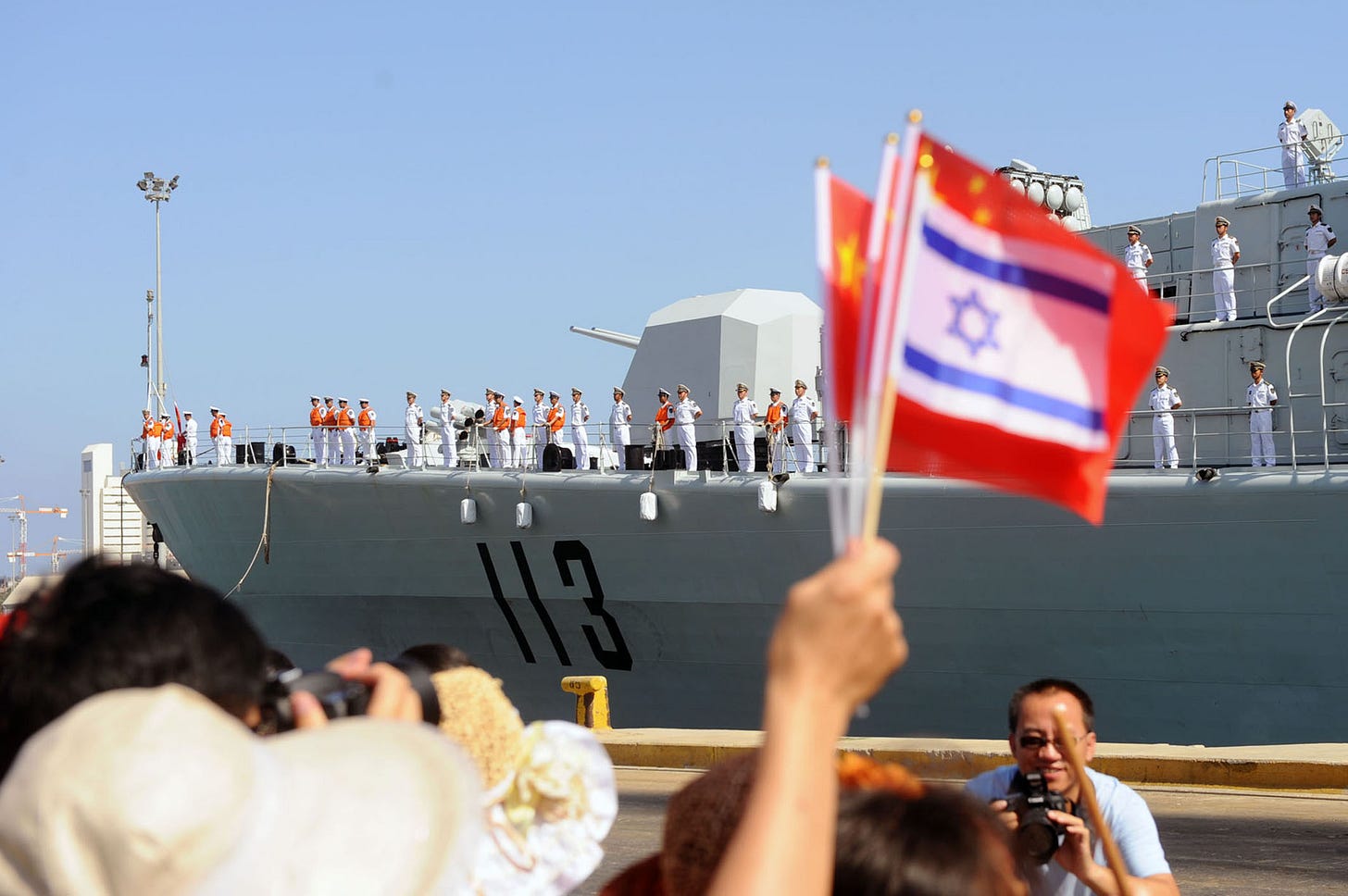Is the Multipolar World Dead?
China and Russia's actions and inactions on Gaza beg some discomfiting questions
This post isn’t paywalled. If you like the work I do, consider becoming a paid subscriber today. I am very grateful for your support and encouragement.
Earlier this week, the UN Security Council voted in favor of a resolution on Trump’s Gaza “peace” plan, a highly controversial initiative that establishes a “board of peace” to oversee the enclave led by Trump himself. The 20-point plan also authorizes an international stabilization force that would fall under the board’s command; it might also carve out a viceroy-like position for Tony Blair. It’s therefore unsurprising that the plan has been criticized for advancing a barely-concealed “imperialist agenda”, and for reproducing the occupation in a new form.
But what has received the most attention in recent days is the behavior of the major powers of the Security Council. The US-led resolution was adopted with 13 votes in favor; China and Russia opted not to wield their veto power and abstained instead. While most have come to expect the US and vassalized Europe to support Israel’s interests (which many see embodied in the US plan), the abstentions from China and Russia have cracked a debate wide open. In recent days, both countries have been savaged by erstwhile defenders over their failure to block Trump’s resolution. Some have even declared the multipolar world dead; others have pointed to the abstentions as evidence that it’s still a far-off dream. Indeed, China and Russia’s tacit approval of the resolution is more evidence that American power, though it may wear a new Mar-a-Lago face, still reigns supreme. Trump can still batter countries into submission–whether through threats of economic ruin, tariffs, or otherwise. And perhaps they didn’t even require all that much battering or cajoling to begin with. Indeed, China and Russia’s actions and inactions on Gaza have prompted some to ask if a multipolar world would be much better for smaller states and national liberation movements than a unipolar one.
This week’s Security Council vote recalled the 2011 UN resolution on establishing a no-fly zone in Libya, when Russia and China also demonstrated “goodwill” and abstained. The result was the disastrous intervention in Libya, culminating in Gaddafi’s gruesome death. Until this week, many believed that Libya would be the swansong of relative Security Council cohesion. When the US sought Security Council approval on resolutions related to Syria in the months and years that followed, Russia and China always made sure to use their veto.
China and Russia defenders maintain that the two countries are constrained by the current world system, which is still dominated by the US. They claim that in the future, China and Russia will be better positioned to stand up to the West. But for now, these people say, China and Russia have no choice but to go along with the US and Israel. These defenders have also cautioned against criticizing China and Russia at all, insisting that any critique will inevitably be seized on by Western governments for propaganda purposes.
But critics say that none of this offers any real defense. China and Russia, they insist, have failed the generational test of Gaza. Both countries have “stood up to the West” on other conflicts. And while Gaza has destroyed any illusions about the US-led order in the West, outside of it, there is also broad recognition that it represents a failing of the entire world. Any honest reckoning must include all of the world’s most powerful countries, including those self-annointed custodians of the multipolar world. Finally, Russia and China have made themselves vulnerable to this critique through both their actions and mismatched rhetoric: China and Russia often employ the language of anti-colonial solidarity; critics are now attacking them for failing to live up to it.
A sketch of recent relations is in order here. China is by far the biggest exporter to Israel, with $19 billion in exports in 2024; the US is a distant second with about half that. China is also the world’s third biggest importer of Israeli products, with imports totaling $2.8 billion last year. Indeed, Israel’s imports of Chinese goods increased 22% over the first half of 2025 alone. Chinese companies are also extensively involved in various Israeli development projects. It was recently announced that several Chinese companies will be working on the construction of power plants in Israel. Israeli tech companies have also been expanding into China, mostly via China-Israel innovation hubs in Shanghai and Changzhuo. In fact, it is only the United States that has sought to reign in China-Israel relations, particularly in the area of technological transfer–resulting in a major contraction in trade in semiconductors. China’s state-owned Shanghai International Port Group (SIPG) is also set to double the capacity of the Bay Port in Haifa, located a mere 1.8 km from the Israeli navy’s main base. According to the Israeli government’s arrangement with SIPG, the Bay Port in Haifa is under Chinese concession until 2040.
Israel-Russia relations are also remarkably solid despite Russian rhetoric to the contrary. In 2022, when European countries imposed sanctions on Russia, Israel refused to follow suit. Israel also refused President Zelenskyy’s request to send defensive weapons to Ukraine. Earlier this year, there were reports that Israel was lobbying Washington to allow Russia to maintain its military bases in post-Assad Syria, presumably to mitigate Turkish and Iranian influence. (In recent years, Iran and Russia’s once-collaborative relations in Syria were increasingly strained). This summer, when asked why Russia wasn’t providing assistance to Iran during the war with Israel, Putin answered that “almost two million Russian-speaking people live in Israel; it is almost a Russian‑speaking country today.” Trade between the two countries has also continued unimpeded.
Perhaps what these policies suggest is that unlike their 20th century predecessors, the current leadership in Beijing and Moscow is not ideologically driven. They seek not to replace the US with a better system, but rather to replicate its privileged position in the global order. While thinking about all of this, I was reminded of a dinner I had with a Serbian human rights lawyer in Belgrade a few years ago. After we argued about the selective application of international humanitarian law, he blurted out that indeed, he wanted to be in the position that the United States was in: he wanted his country to be able to commit war crimes and get away with it.




I find myself agreeing more with the critics on this, and especially with respect to what you point out in the mismatch between rhetoric and action. Though honestly I think even the Chinese and Russian governments would be surprised by the degree of sincerity some of their most aggressive defenders attribute to them in anti-imperialism! Not as if their ambivalence on Gaza/warm relationships with Israel have been hidden all this time..!